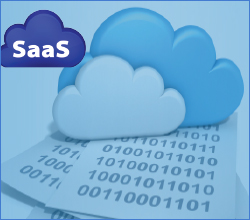
Stability Studies and Estimating Shelf Life
 Steven Wachs
Steven Wachs
 90 Mins
90 Mins
Product Id: 706026
The webinar will provide useful methods and techniques for conducting a stability study and analyzing the resulting data for the purpose of estimating shelf life. Participants should be able to immediately apply the methods presented. Also, the interpretation and communication of results will be stressed and illustrated in several examples.

Statistical Methods for Quality Improvement
 Steven Wachs
Steven Wachs
 90 Min
90 Min
Product Id: 705856
This webinar presents an overview of essential quantitative methods for assessing and ensuring product quality. The methods include: Statistical Process Control, Process Capability Assessment, Regression Modeling, Design of Experiments, Hypothesis Testing, and Measurement Systems Assessment.

Predicting Product Life Using Reliability Analysis Methods
 Steven Wachs
Steven Wachs
 90 Min
90 Min
Product Id: 702096
Achieving high product reliability has become increasingly vital for manufacturers in order to meet customer expectations amid the threat of strong global competition. Poor reliability can doom a product and jeopardize the reputation of a brand or company. Inadequate reliability also presents financial risks from warranty, product recalls, and potential litigation. When developing new products, it is imperative that manufacturers develop reliability specifications and utilize methods to predict and verify that those reliability specifications will be met. This presents a difficult challenge in many industries with short product cycles and compressed product development time frames. This webinar provides an overview of quantitative methods for predicting product reliability from data gathered from physical testing or from field data.

Sample Size Determination for Design Validation Activities
 Steven Wachs
Steven Wachs
 90 Mins
90 Mins
Product Id: 705852
Statistical Methods are typically used to ensure that product performance, quality, and reliability requirements are met during the Design Validation phase of product development. This webinar discusses common elements of sample size determination and several specific sample size applications for various design validation activities including Reliability Demonstration/Estimation, Acceptance Sampling, and Hypothesis Testing.

Acceptance Sampling Plans for Process Validation and Production Lot Monitoring
 Steven Wachs
Steven Wachs
 90 Mins
90 Mins
Product Id: 704315
This webinar provides details regarding the generation of acceptance sampling plans often used in process validation and production control to ensure quality of final products. By attending this webinar, participants will be able understand the key inputs and issues involved in determining acceptance sampling plans. Sampling plans for attribute data are the primary focus although variable acceptance sampling plans are presented as well.

An Advanced Course on Lean Documents, Lean Configuration and Document Control
 Jose Mora
Jose Mora
 90 Min
90 Min
Product Id: 701653
In this training, learn the different types of lean documents and the usage of lean document principles; types of controlled documents; examples of lean and non-lean controlled documents. Pros and cons of lean vs. non-lean documents.

Human Error Reduction in GMP Manufacturing
 Ginette M Collazo
Ginette M Collazo
 90 Min
90 Min
Product Id: 704107
This training program will offer attendees an understanding of human errors in GMP related environments, factors and causes, and control measures to be put in place to reduce the same.

Complaint Management: Best Practices to Assure Regulatory Compliance and Customer Retention
 Jeff Kasoff
Jeff Kasoff
 60 Min
60 Min
Product Id: 700986
This session will include the requirements for all of the complaint handling responsibilities, which will include defining, documenting, and implementing a complaint-handling system, the requirements for complaint review, investigation, and corrective action, as well as ISO-specific implications. Also covered will be a discussion of what constitutes a complaint, and recommended practice on how to handle "non-complaint" feedback. Also covered will be the application of risk management to a complaint handling system, and a specific risk management system explained.

What to Expect and How to Prepare for Remote Auditing
 Barbara Butrym
Barbara Butrym
 60 Min
60 Min
Product Id: 706459
Events in the world are affecting how we do business with travel restrictions we face new uncharted waters, Companies need to maintain their certifications / suppler status and are required to be audited either by a CB or a customer periodically. To protect the client and the auditor remote auditing has been proposed as the solution. The big question is how do we prepare for a remote audit? What are some challenges and how do we address them? Some guidelines have been flowed down from Certifying Bodies to their auditors. This session will share those guidelines and help you prepare for a successful remote audit.

Corrective and Preventive Action; Our Most Important Quality Process
 William Levinson
William Levinson
 90 Min
90 Min
Product Id: 706684
Corrective and preventive action (CAPA) is a process of the quality management system that begins with the identification of a problem (or opportunity), goes through a series of steps including identification of the root causes and deployment and verification of a solution, and documentation and deployment of lessons learned. The deliverables include not only elimination of the problem at hand, or realization of the opportunity, but application of the best practices learned to related activities.

When Zero Isn't Zero; How to Handle Lower Detection Limits
 William Levinson
William Levinson
 60 Min
60 Min
Product Id: 706660
Traditional process capability studies and statistical control methods rely on the assumption that measurements are available for all items. There are some applications, however, in which the gage or instrument cannot quantify measurements below a lower detection limit (LDL) and returns a measurement of zero (or "not detected"). Typical applications include pollutants, trace impurities, and trace contaminants. Statistical methods for left-censored data can be applied in these cases.

Modified DD2977: A Simple Alternative to Process Failure Mode Effect Analysis
 William Levinson
William Levinson
 60 Min
60 Min
Product Id: 706381
Attend this webinar to learn how to use DD2977 for relatively simple product realization processes, administrative processes of a quality management system, and services.

How to Have High Wages, High Profits, and Low Prices
 William Levinson
William Levinson
 60 Min
60 Min
Product Id: 706613
The Ford Motor Company of the early 20th century proved with bottom-line financial results that high wages are consistent and even synergistic with high profits and low prices. Henry Ford and his contemporaries such as Frank Gilbreth and Frederick Winslow Taylor recognized that enormous waste is built into most jobs at the expense of worker, employer, and customer alike. This webinar will show how the problem is usually correctable very easily once it is recognized, and also how to recognize it on sight.

New Process Failure Mode Effects Analysis and Control Plan
 William Levinson
William Levinson
 90 Min
90 Min
Product Id: 706579
The Automotive Industry Action Group's (AIAG's) and the Verband der Automobilindustrie (VDA) (German Association of the Automotive Industry) issued a substantial improvement on previous approaches to failure mode effects analysis (FMEA). This process is very well structured and user-friendly, and eliminates some of the drawbacks of the previous approach.

Coronavirus: Health and Business Considerations
 William Levinson
William Levinson

Product Id: 706434
The coronavirus outbreak has caused thousands of deaths around the world along with extensive economic disruption. China has issued several overt threats to disrupt U.S. supply chains, and the stock market is in turmoil. This presentation will provide information on how organizations can position themselves to handle the disruption and even realize opportunities for improved performance as a result.

Making Data Driven Decisions using Statistical Hypothesis Testing
 Steven Wachs
Steven Wachs
 60 Min
60 Min
Product Id: 704211
This training program will cover statistical hypothesis testing concepts including: null and alternate hypotheses, test statistics, p-values, confidence intervals, confidence levels, power, power curves, and sample sizes. Several types of hypothesis tests will be covered such as 1 and 2-sample means tests, tests of variances, and tests of proportions. Equivalence tests will also be discussed. The importance of selecting appropriate sample sizes will be stressed.

Using Kanban JIT Systems to Run a Startup Plant
 Jose Mora
Jose Mora
 90 Min
90 Min
Product Id: 700419
Attend this webinar to learn how to set up and use kanbans, JIT, pull system, and drum-buffer-rope in medical device and biotechnology manufacturing start-up operations. Also attendees will learn elements of lean documents and lean configuration, sterilization lot size, MRP II kanban system and how to use kanbans to track off-site sterilization and external supply chain suppliers.

Process Capability Analysis, and What to Do if it's Not a Bell Curve
 William Levinson
William Levinson
 60 Min
60 Min
Product Id: 705157
This process capability analysis webinar will discuss the relationship between variation and accuracy, and process yield, short term versus long term variation, non-normal distributions and how to perform a process capability study.

3-Hr Virtual Training: Introduction to Design of Experiments
 Steven Wachs
Steven Wachs
 3 hrs
3 hrs
Product Id: 704847
In this training program, attendees will understand when and why to apply DOE (design of experiments). They will also learn to identify and interpret significant factor effects and 2-factor interactions and develop predictive models to explain and optimize process/product behavior. Applying efficient fractional factorial designs in screening experiments will also be discussed.

Bullet-Proof CAPA
 John E Lincoln
John E Lincoln
 60 Min
60 Min
Product Id: 700818
In this CAPA training program attendees will learn how compliant CAPA require specific failure investigations, and are dependent upon timely and accurate determination of root cause(s) such as Correction, Corrective Action, Impact Analysis, and Preventive Actions required to meet regulatory expectations.


























